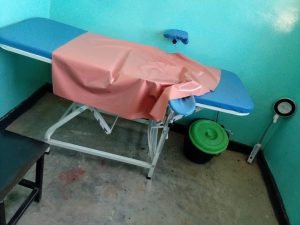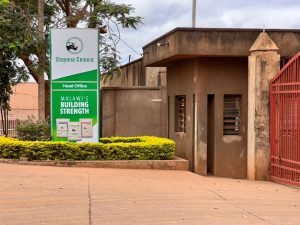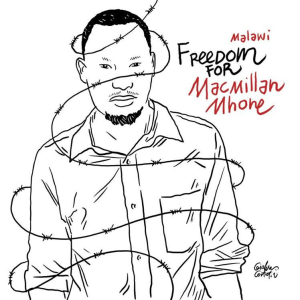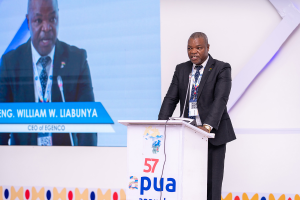MALAWI’S DUBIOUS HELICOPTER DEAL

A Bell 412 in full Flight
… Purchasing Two Near-Obsolete Aircraft for the Price of New at K14.7Bn
BY GREGORY GONDWE
Malawi Government officials are on the brink of purchasing helicopters that have been grounded since 2013, yet at a cost akin to brand-new models.
The decision involves acquiring two Bell 412 helicopters, each priced at a staggering US$4 394 718 million, amounting to a total expenditure of K14.7 billion.
This controversial plan comes as an attempt to replace 15 defunct helicopters, which previously compelled the Malawi Defence Force (MDF) to rely on aid from neighbouring Tanzania and Zambia for essential air operations when Cyclone Freddie struck.
Defence Minister Harry Mlekanjala Mkandawire and MDF Commander General Paul Valentino Phiri are spearheading this contentious acquisition.

However, insiders within the defence community, including Platform for Investigative Journalism (PIJ), sources are raising alarm.
They criticize the deal for overlooking these aircraft’s substantial depreciation and lack of operational readiness, which have not taken to the skies in nearly a decade.
Furthermore, the procurement process is reportedly bypassing essential oversight from key authorities such as the Public Procurement and Disposal of Assets Authority (PPDA), the treasury, the Anti-Corruption Bureau (ACB), and the Financial Intelligence Authority (FIA), casting a shadow of doubt over the legality and fiscal responsibility of the transaction.
A source within the Ministry of Defence, connected to PIJ, disclosed that the current plan for helicopter procurement entails utilizing funds from the Peace Keeping Mission. This strategy is specifically chosen to circumvent the standard financial oversight typically provided by the treasury and other relevant procurement agencies.
MDF Technical Report Reveals Startling Facts
Amidst the controversy surrounding the Malawi Government’s decision to purchase two Bell 412 helicopters, a detailed MDF technical report has surfaced, casting further doubt on the prudence of this over K8 billion deal. The report, compiled after thoroughly examining the aircraft at Eurotech Helicopter Services in Caiolo, Italy, reveals concerning details about their condition and readiness.
Technical Analysis of AGUSTA BELL 412-09 and CC-11

This report provides an in-depth examination of two specific aircraft: the AGUSTA BELL 412 CC-11 and AGUSTA BELL 412-09, manufactured in 1988. The CC-11 has accumulated 3,963 airframe hours, and the 412-09 has recorded 3,770 hours.
A critical aspect of the report is identifying significant components in both aircraft that are either expired or nearing the end of their service life. This situation necessitates extensive repairs and replacements to restore airworthiness.
Discrepancies and Maintenance Issues
A key concern noted in the report is the discrepancy between the aircraft presented to the Ministry of Defence (MoD) and Malawi Defence Force (MDF) by AYA Technologies and those actually inspected in Italy on 10 October 2023.
A critical part of the technical report, as seen by the Platform for Investigative Journalism (PIJ), highlights a significant discrepancy in the Bell helicopters presented to MoD and MDF personnel.
The aircraft brought forth for inspection, identified by their registration numbers CC09 (serial number 81313) and CC11 (serial number 81315), have been grounded since 2013 and 2014, respectively. The lack of proper storage procedures for these aircraft has led to significant depreciation in their value.
“The two Bell aircraft registration numbers CC20, serial number 81381, and CC21, serial number 81438, presented to MoD and MDF personnel by AYA Technologies are not the same as the ones offered for inspection in Italy. The aircrafts offered for inspection were Registration numbers CC09, serial number 81313 and CC11, serial number 81315, as proved by the serial numbers in the documentation,” the report states.

Concerning Observations
The technical analysis of the AGUSTA BELL 412 aircraft reveals a need for crucial maintenance. This includes comprehensive inspections, blade replacements, fuel tank checks, and updates to critical components like the starter motor and main gearbox.
A notable limitation is that both aircraft lack modern flight equipment, such as weather radar, which restricts their operational capabilities in adverse weather conditions.
The report also highlights a staffing issue:
“The current crew for twin engine in Malawi Air Force who may qualify for Bell 412 training are two pilots. The rest are single-engine qualified,” it reads.
Further exacerbating the concerns, the two Bell aircraft have been grounded since 2013 and 2014, respectively, without appropriate storage procedures.
The Malawi Defence Force (MDF) report states, “This has drastically depreciated in value of the two aircraft. Some of the aircraft’s important components expired for six to ten years, rendering these aircrafts not airworthy to fly.”
The report also critiques the supplier, AYA Technologies, describing it as an agent of Axxium Company, lacking the technical capabilities to service the Bell 412. Instead, Eurotech Helicopter Services has been contracted for this purpose.
“AYA does not offer technical training in this contract. Maintenance and servicing will have to be done only by hired mechanics over a separate contract signed on extra charges or training our own technicians at additional costs,” the report notes. It also references a case study of a Malawi Police Bell helicopter that has been inoperable for decades at Ntakataka due to a lack of servicing.
Supplier Credentials and Aircraft Capacity
Regarding the supplier’s credentials, the report states, “The FAA certificate depicted in the presentation belongs to AXXEUM Inc. in Alabama, USA and not AYA Technologies. This means that we are dealing with a third-party supplier as we sign the contract.”
Furthermore, the report mentions the current passenger capacity for each aircraft is suitable for transporting 13 troops and upgrading for VIP use would incur an additional cost of $487,625.
Depreciation and Maintenance Concerns
The aircraft, manufactured in 1988 and grounded in 2013 and 2014, have not been appropriately preserved.
“The value of the aircraft and components have been done. The value of the aircraft has been depreciating over the years, and the salvage value has been reduced significantly. The cost of the two aircraft has not changed: remaining the same regardless of the condition,” the MDF report asserts.
Operational Limitations
Finally, the report emphasizes that the aircraft, with many expired components and lacking modern technology, are limited in operational capabilities, particularly in adverse weather conditions.
Recommendations and Future Considerations
The technical report culminates in crucial recommendations for the Malawi Government’s helicopter procurement process. It calls for a comprehensive reassessment of the decision to purchase the specific Bell 412 aircraft models, emphasizing the need for a specialized inspection team. This team would verify the replacement and certification of all expired components, ensuring the aircraft meets necessary airworthiness standards.
Furthermore, the report advocates for a careful evaluation of the aircraft’s age and how well their technology aligns with the current operational fleet of the Malawi Defence Force. Considering more modern, efficient aircraft better suited to Malawi’s defence requirements and financial capabilities is strongly advised.
The report highlights the importance of technological advancement: “Buying older versions of aircrafts than our current fleet would be retrogressive as pilots and technicians have to work in new technology machines that would alleviate the standards of the new age technology.”
An aeronautical technician told PIJ that this recommendation underscores the need for forward-thinking procurement to ensure that Malawi’s defence forces are equipped with tools that reflect contemporary technological advancements.
The report elaborates on the need for advanced technology in potential new aircraft acquisitions. It specifies the importance of features such as all-weather radar systems, state-of-the-art navigation equipment, and enhanced passenger capacity, suggesting a VIP seating arrangement for at least 8 to 10 passengers.
Additionally, it recommends aircraft with wheel-end landing gear and sand-filtered capabilities to ensure broader operational versatility and adaptability to different environments.
If the decision to procure the currently non-operational aircraft is still pursued, the report provides critical conditions for proceeding. It stipulates that any contract for these aircraft should only be finalized after comprehensive replacement and certification of their serviceability.
Moreover, a re-evaluation of the aircraft’s cost is advised, given their current condition and market value.
The report reiterates the availability of better options: “There are serviceable, modern aircrafts on the market that would be ready within the shortest period possible of similar and better capabilities as our fleet of Pumas at an affordable price.”
The aeronautical technician said this recommendation highlights the feasibility of acquiring more suitable, cost-effective alternatives that align with the operational needs and financial constraints of the Malawi Defence Force.
Retired MDF Commander Nundwe’s Take
The Helicopter deal started with Retired MDF Commander General Vincent Nundwe, who responded to PIJ inquiries substantively, shedding light on the complexities and alleged mismanagement surrounding the decision.

The Aftermath of Cyclone Freddy
Nundwe recounted his actions, saying following Cyclone Freddy’s devastation, he communicated with President Lazarus Chakwera about the urgent need for helicopters for rescue and relief operations. He highlighted Malawi’s lack of resources and was instructed to seek assistance from neighbouring countries, which promptly responded to the crisis.
“In March this year, I contacted the President after the aftermath of cyclone Freddy as Malawians, we had nothing to use to rescue people,” said Nundwe in a phone interview. “We could not give immediate relief to the people at the time of the cyclone… Instead, the President asked me to request assistance from our colleagues to come to our rescue, so I called my colleagues in Zambia and Tanzania. Fortunately, after they consulted their respective presidents, they immediately said this is a crisis, so go and assist them.”
Reflection on Past Capabilities
Nundwe lamented the decline in Malawi’s aerial capabilities since President Kamuzu Banda’s era, noting that the country once had a substantial fleet of over 15 helicopters. The current fleet, including expensive-to-maintain Puma helicopters, was inadequate and not economically viable for Malawi.
“As a country, how do we look at ourselves?” he wondered.
He said Malawi is failing to maintain its more than 15 helicopters because it’s an expensive exercise to carry out.
Proposal for Economical Helicopters
“It’s like you have a Corporal who goes out and buys a Rolls Royce; it’s not possible to maintain it with the Malawi economy. So, the Pumas that we have are too expensive to maintain,” he declared.
He says he suggested a shift to more affordable Bell helicopters, akin to economical vehicles like Mira or Sienta. Nundwe advocated for models that would align with Malawi’s economic constraints. President Chakwera supported this idea and authorized research into potential purchases.
The Procurement Journey and Budget Allocation
Airforce Commander Major General Ian Chirwa was tasked with exploring options. Nundwe mentioned the budget consultations for the 2023/2024 fiscal year, where K10 billion was allocated for helicopter purchases, though Nundwe deemed this amount insufficient.

“As a commander, you directly talk to the Commander in Chief, so from there I told Mr. Mkandawire what I have told the President. The President also advised us to travel with technicians, to which I responded that we cannot go without them because we are not specialists. So, the team contacted three companies in South Africa,” he explained.
In the first week of April, they visited South Africa, and one of the companies they spotted was Airbus South Africa, which was already on talking terms with MDF as they were supposed to service and maintain some smaller helicopters that MDF has.
“As I speak, the helicopters are there; they were sent to South Africa, we call them ecureuil,” Nundwe indicated.
Engagements with Suppliers
During MDF’s visit to South Africa, they engaged with three companies, including one that had previously dealt with Zambia. This particular company advised them that they would direct MDF to their parent company in Canada if they were interested in acquiring Bell helicopters.
“In our report, we evaluated the Bell 212 helicopters, specifically looking at second-hand models with favourable operational hours. We noted that even the Presidential Jet was not brand new, suggesting that purchasing second-hand aircraft could be a viable option,” he explained before highlighting the cost-effectiveness of the Bell helicopters compared to repairing the Pumas.
“Based on our findings,” he further said, “we concluded that with the allocated budget of K10 billion, we could acquire two new Bell helicopters, each costing around K3 billion. The remaining K4 billion would be allocated for refurbishing the other two helicopters.”
He said many still favoured repairing their existing Puma helicopters – one designated for the President and another for utility purposes. However, the cost of refurbishing these two helicopters was estimated to be as high as 18 million dollars. In contrast, purchasing a new Bell helicopter would cost only about 2.5 million dollars each.
“Therefore, instead of spending a substantial amount on repairs, we realized that the same funds could potentially allow us to acquire five to six new, smaller helicopters,” he said.
Despite this, he harboured reservations and believed that the Malawi Government should consider options for disposing of the Puma helicopters.
“It’s notable that the cost of repairing these two, along with the two smaller planes that were sent to South Africa, was escalating to a staggering K22 billion,” he insists.
Interference and Changes in Procurement Strategy
Upon presenting their report to the President, Nundwe claims Defence Minister Harry Mkandawire unexpectedly intervened. He submitted a memo to the President, accusing Nundwe’s team of relying on third-party intermediaries. The President concurred with Mkandawire’s perspective, which led to a significant shift in the procurement process.
Consequently, the entire operation was suspended and subsequently taken over by Mkandawire.
“Under his direction,” Nundwe alleged, “the Ministry began identifying potential suppliers.”

Mkandawire also reached out to three companies.
“Given the deviation from our original mandate, I withdrew from this process phase, feeling that these actions were not in good faith. Major General Ian Chirwa was also involved, and the search extended internationally, including a company from the US and another from Italy. Mkandawire and the new Commander General Paul Velentino Phiri later travelled to Italy as part of this revised procurement process,” explained Nundwe.
Information PIJ has found shows that apart from Mkandawire and Phiri, others that were part of the delegation include Director of Administration in the Ministry of Defence Richard Chiphazi Zionaine Hara, Deputy Airforce Commander Brigadier General Ismael Robray Aman, Chief of Logistics Brigadier General Desmond Chawanda and ADC to the MDF Commander Captain Kennedy Aubry Nkhani.
Nundwe still believes that the pricing for the helicopters is a crucial consideration. The Bell 212 model was priced at around 3 million dollars, while the larger Bell 412 models could cost between 4 to 5 million dollars.
“We had these figures confirmed by the parent company. However, Mkandawire’s preference leaned towards the Italian company. This decision came under scrutiny when it was discovered that the helicopters offered by this company had not been in operation since 2013, yet Mkandawire was insistent on procuring them. Despite this, the MDF maintained its integrity and did not succumb to pressure to endorse these machines positively,” Nundwe said.
Nundwe expressed his apprehensions about Defence Minister Harry Mkandawire’s involvement.
He accused Mkandawire of misusing MDF funds for travel and not adhering to proper procedures, leading to potential audit queries. He also highlighted Mkandawire’s influence in his forced retirement, alleging political motivations and mismanagement within the MDF.
Defence Minister Harry Mkandawire’s Response
When approached, Defence Minister Harry Mkandawire initially expressed unawareness about the helicopter procurement issue.
However, upon further reflection, he conceded that he might understand the source of these concerns.
Through a WhatsApp exchange, he stated, “…. This has to be from soldiers not happy about the removal of the old command…”.
MDF Commander’s Response

In response to inquiries about his involvement in the helicopter purchase, Army Commander General Phiri, speaking to the Platform for Investigative Journalism (PIJ), emphasized his cooperative stance was due to his fairness, not a willingness to divulge sensitive security information. He stated, “I was only friendly because I am fair; otherwise, with such a sensitive security matter, I am not willing to divulge anything.”
General Phiri invited PIJ to meet the committee responsible for the helicopter acquisition. “You need to face all the committee members so that they can ask you questions as per your claims,” he said, facilitating a direct inquiry into the procurement process.

Contradicting claims of his involvement with the Defence Minister in the deal, General Phiri clarified, “It is not true that I have been involved in the deal with the minister.” He stressed that the helicopter purchase was predominantly a Ministry of Defence initiative, with the MDF as a beneficiary post-purchase.
“The helicopter purchase deal is not even an MDF issue as it is the Defence Ministry that is about to purchase the helicopters,” he insisted.
Addressing utilizing Peace Keeping Mission funds, General Phiri said, “Peace Keeping funds cannot just be used willy nilly!” He assured that the use of these funds would follow a justifiable and transparent approach, although he confirmed that the committee had not yet reached the point of referring the matter to the Public Procurement and Disposal of Assets Authority (PPDA).
Former General Hints at Accessing Peace-Keeping Funds
The former Army Commander believes there is a possibility of using the Peace Keeping Mission resources without following due diligence like going through the PPDA.
Nundwe pointed out the feasibility of using Peace Keeping Mission funds, a notable shift from the obstacles experienced in the past, especially under the Democratic Progressive Party regime.
Reflecting on those times, he said, “There was a time when we needed supplies for the boys in DRC. The late former finance minister Goodall Gondwe used the 4 million dollars for government activities, thereby denying the MDF the resources for the Peace Keeping Mission in DRC.”
He emphasized the urgency and practicality of such situations, stating, “If you need bullet supplies, you cannot wait. So, when you are supporting boys in operation, you do not need a lot of processes.” Nundwe highlighted the critical nature of prompt action in military logistics, especially peacekeeping operations.
To ensure the proper handling of such crucial funds, Nundwe stressed the need for integrity. “For this to be done without suspicion, there is a need to have people that have integrity,” he said, underscoring the importance of ethical standards and transparency in managing military finances, particularly when standard procedures are bypassed for urgent needs.
Responses from Chakwera, ACB, PPDA and FIA
The Army Commander Phiri detailed the standard protocol for military procurement, highlighting the roles of various regulatory bodies.
He stated, “Once we are ready with a procurement of any kind, PPDA is involved, and before PPDA gives us a no objection, they refer the procurement request to ACB, which in liaison with FIA make recommendations.”

Grace Thipa, the Public Relations Officer for the Financial Intelligence Authority (FIA), clarified their involvement.
“ACB makes sense as the PPDA act is clear on ACB vetting for single source and high-value procurements but not FIA,” Thipa insisted, delineating the distinct roles of these bodies.
This explanation is consistent with the Army Commander’s assertion that the process had not yet progressed to the stage of engaging the Public Procurement and Disposal of Assets Authority (PPDA) and the Anti-Corruption Bureau (ACB).
Egrita Ndala, Principal Public Relations Officer Spokesperson for the ACB, confirmed this: The issue to do with the helicopter “has not yet reached the Bureau.”

Additionally, Kate Kujaliwa, Public Relations and Communication Manager for the PPDA, redirected inquiries about the procurement status to the Malawi Defence Force.
“As of this day, 28th November 2023, the Malawi Defence Force (MDF) has not made a submission to the Authority regarding the procurement in question,” Kujaliwa informed.
Regarding the involvement of President Chakwera, who is the Commander-in-Chief, his position was communicated via his Press Secretary, Anthony Kasunda.
Speaking to PIJ, Kasunda conveyed that the President had been “waiting for some information from the MDF” since November 26, when he acknowledged receipt of the PIJ questionnaire.

Concerns Over Future Preparedness
Nundwe stressed the urgency of acquiring operational helicopters, especially with the looming threat of future cyclones. He criticized the current procurement process’s inefficiency and lack of transparency, linking it to potential greed and corruption.
Call for Strategic Security Policy
Emphasizing a strategic security policy to guide national interests, Nundwe called for integrity and proper management in handling national defence and emergency preparedness.
Retired Commander Nundwe’s detailed statement provides a critical insider perspective on the helicopter purchase scandal. His account raises severe concerns about the decision-making process, suggesting potential mismanagement and corruption, and underscores the need for transparency and accountability in government procurement.





